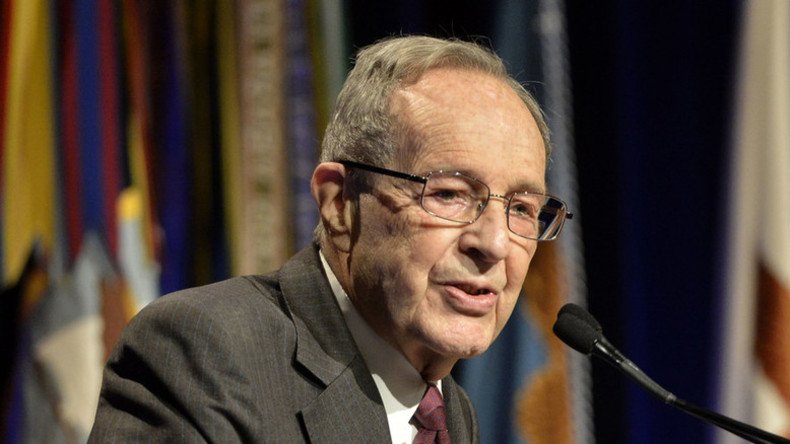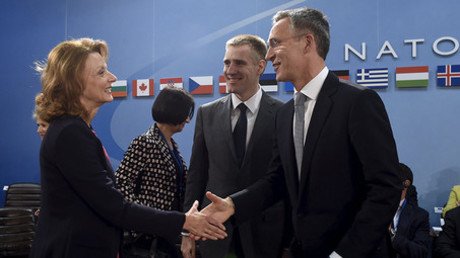‘US made 1st move to worsen ties with Moscow’ – ex-Pentagon chief

Washington initiated the aggravation of dialogue with Moscow by making a number of strategic mistakes, a former Defense Secretary under Bill Clinton has told US media. Among such errors were the “premature” expansion of NATO and the breaking off of military ties.
The chain of events that led to the rapid deterioration of US-Russian relations started in the early 1990s, The Hill cited William Perry as saying.
Perry, who served as Secretary of Defense under Clinton from 1994 to 1997, spoke at a roundtable hosted by the US-based Defense Writers Group on Thursday.
At the time, Washington championed the expansion of NATO and decided to deploy a US-led NATO contingent to Bosnia, once part of the former Yugoslavia – a move that unleashed bloody wars in the Balkans with thousands of civilian casualties.
“We were on the way to forging a really positive and solid relationship between the US [and Russia], and then in 1996 we announced we were going to expand NATO, which, as I said, I’m not opposed to in general, but it was premature,” said Perry. “That was the first move down the slippery slope.”
“It’s as much our fault as it is the fault of the Russians, at least originally,” he said. “And it began when I was secretary.”
Although Perry accused Russia for “entering Ukraine [and] threatening Baltic nations,” he admitted that “if you look over a 20-year period and put the scoreboard together, there are at least as many American mistakes as there were Russian.”
Perry also recalled the situation in the former Yugoslavia, when the US and Russian military managed to cooperate within a unified command chain to avoid any potential accidents, which he said was far from being an option in Syria today.
Despite Washington’s failures in policymaking, it was “stupid” to break military-to-military cooperation with Russia, Perry argued. “It’s a political statement, ‘We’re going to cut off a military-to-military relationship.’ It’s stupid, but that’s what we do,” Perry said. “That’s the time when you need your military-to-military relations most of all.”
Military relations between Russia and the US have been suspended since the Ukrainian crisis. However, since the launch of Russia’s anti-terror operation in Syria, Moscow has proposed cooperation with the US-led forces in their ongoing military campaign in Syria.
In October, Moscow and Washington signed a bilateral agreement with the US on preventing dangerous incidents over and on Syrian soil, as both Russian and American air contingents are operating there.
The agreement currently in force includes establishing 24/7 ground communication line between Russian and American military staffs and enacting a set of radio frequencies both sides can make use of, as well as appointing a temporary working group to facilitate any issue that may arise.
READ MORE: Russia, US sign cooperation deal on Syria airstrikes
So far this is the only sign of a collaborative military effort between the two countries in Syria, as the US is still reluctant to join forces with Russia in the fight against Islamic State (formerly ISIS/ISIL). In the meantime, the US-led coalition force is conducting its own aerial campaign, which Russia sees as illegitimate without a specific UN Security Council mandate or Syrian government approval.













